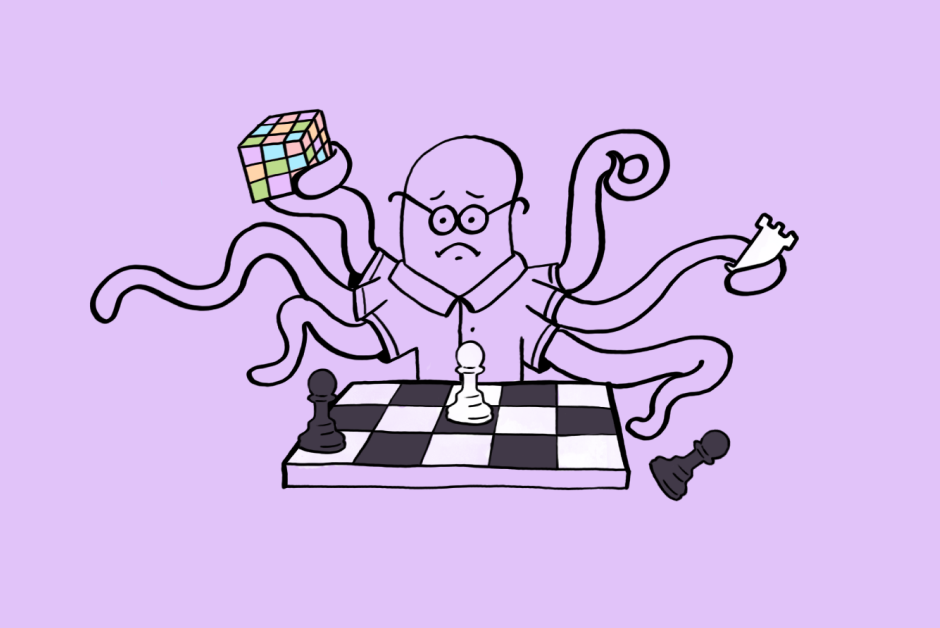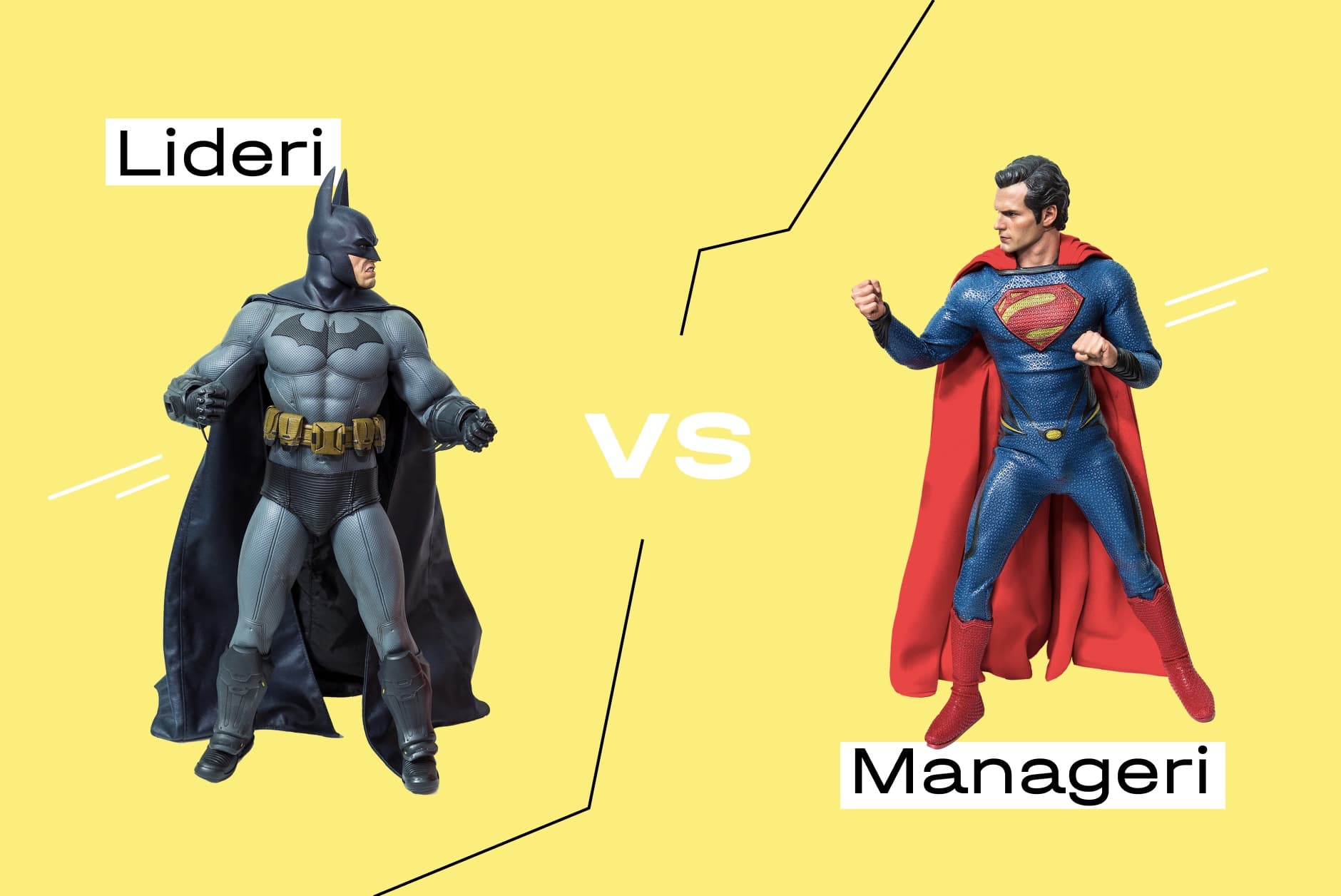Professor David Slocum is a leader’s leader. An accomplished academic who teaches the art of effective yet compassionate leadership at Thunderbird School of Management and Berlin School of Creative Leadership, he has worked with some of the world's most prominent and creative CEOs.
In his role as academic director at RARE, a Google-backed platform, he roams the world to promote diversity, equity and inclusion in the creative industries and educate the next generation of executives on the power of inclusion and belonging.
In this interview, Professor Slocum shares his thoughts on what makes a leader great in the face of challenges such as remote work, AI and the pandemic.
He also explains how his course at Skillab Global, starting in the spring of 2023, will help you rule the C-Suite by mastering the concepts of “self-leadership” and “situational leadership”.
Professor Slocum, what are the key features of good leadership?
The first strength leaders should have is adaptability: adapting to shifting conditions and to the ever-changing needs of leading people around them. That is a stepping stone to other key attributes.
Another related feature is learning. To adapt well, one has to be able to learn continually. Both adaptation and learning require a certain level of awareness of oneself, as well as awareness of the interactions one has with others and the shifting situations and salient factors defining the environment.
Finally, it is particularly challenging today to be able to scan the broader environment and determine what is salient in a sea of information overload and noise.
Since you mentioned self-awareness, part of your course at Skillab Global will focus on “self-leadership”. What is that?
This is among the most debated areas of contemporary management research. It is often posed as a question of how authentic and aware of their own tendencies and actions, principles and values leaders should be.
I will start my course at Skillab Global by exploring the ideas of Daniel Goleman, the godfather of emotional intelligence. About 10 years ago, Goleman published an article claiming that focus is central to effective leadership.
For Goleman, there are three main objects of leadership focus:
#1. focus on oneself, which allows for greater understanding of one's own strengths, feelings and behaviour
#2. focus on others, which allows for developing relationships and the shared stories and meaning upon which they’re built
#3. focus on the broader environment, which allows leaders to identify which factors matter in the organisations, markets, communities and societies around them
So how do we allocate focus?
The three most precious personal resources we have are time, energy and attention. Every day we need to determine how we allocate those personal resources, essentially to lead ourselves. Without self-leadership we cannot effectively interact with others.
We also need to determine what our priorities, values and core principles are. Individual character guides leaders, so to be as effective and fulfilling as possible, leaders need to develop self-understanding. But we need to recognise that self-understanding grows and changes each day. And self-leadership isn't just important for senior people, but also workers at every level.
Another key concept you will be discussing is “situational leadership”. What are its key features?
This goes back to one of the major historical approaches to management, which was especially prominent in the second half of the last century – the contingency theory of leadership, which broadly assumes how leaders behave is contingent upon the different situations in which we find ourselves.
The term “situational leadership” emerged in the 1970s when a team of psychologists including Hersey and Blanchard created a model that mapped where the leader is in the life-cycle of managing a team. For them, the way you interact with your team on the first day of work – how supportive of them or directive you may be – is different from what you will be doing after one year. In time, hopefully, you will have developed an understanding of how everyone works and will have built trust.
I'm a great believer in situational leadership, but not necessarily only in a schematic model like that of Hersey and Blanchard, which has leaders defining themselves straightforwardly according to set stages of situational and team development.
For me, “situational leadership” involves an ongoing interaction between one's values and whatever relationships with others may develop and whichever environmental factors may emerge. It is about bringing out a leader’s own character, core principles and beliefs and determining how these values can best guide the leader and the team. So it requires an ongoing presence of mind and awareness of our position as leaders in a larger system involving other people and a host of situational factors.
What’s your take on “horizontal management”, which is essentially a more collaborative leadership style?
I deal with this question in a book I am working on about “The history of creative leadership”. When one looks at the history of creativity in business management, one can identify a pendulum swinging over time between the emphasis on people-focused and on process- or task-focused management.
Over the last 20 years, there has been a broader movement toward a more people-centred, humane management. More emphasis on horizontality of team or organisational behaviours and design is one manifestation of that trend. And I believe that’s a good thing, but there are limits.
From my experience at Google, one of the challenges with horizontal leadership, which is pronounced in the tech sector, arises when engineers become adept at solving technical problems. They like having ownership of these problems, which can be positive because that ownership provides them with a sense of engagement and purpose.
In fact, increasing a sense of ownership in their work is exactly the kind of relationship we want to set up for many workers. But the problem is that those engineers often don't understand the broader scope or implications of the project in which they are working on specific problems.
At Google, I have worked with individuals and teams. Sometimes the head of an engineering team spends time with marketing and other creative teams. But the difficult part is to challenge these engineers to step back from that specific problem and understand the larger context, either at Google or in the market. Asking them to step back further and consider the ethics of a product, for instance, or how a product may have a broad social impact - that's harder still.
So horizontality at the level of product or service development can be very effective. What's often missing is a broader understanding of the impact of those products or services and of the individual worker’s or leader’s role in shaping that impact.
Does remote work, with teams scattered across the globe, make things more difficult?
Like horizontal management, remote work has a different impact in different situations. With some important exceptions, again like some of the hyper-specific technical problem-solving undertaken by engineers, I believe that in-person interactions are incredibly valuable.
Still, hybrid work can be very productive, so there's a question of how much remote work is ok. Does it mean people should be meeting in real life two days a week or three days a week? And of course, beyond a given frequency or amount of time, how is that time best used and, for leaders, how should people be led best when they are working together both in real life and remotely.
There are different research findings about these questions. For certain kinds of work, for example marketing or media production, it's difficult to be creatively productive if your work is entirely remote. But there are also kinds of more technical work, for example dealing with large datasets, that can consistently be done productively in a remote fashion.
There's research by people like Lynda Gratton at London Business School who argue that if you have an otherwise fully remote team, you should be bringing them together at least once a year, ideally at the beginning of the year, so they can get some feel for each other in real life. Then you can continue working remotely.
What we need to avoid is suggesting that following the pandemic, everyone should strive to work together in real life for a set number of days per week or month or year. There's no one-size-fits-all formula – and here, again, is where leadership should determine what works best with a given team and given situation.
There's been an explosion of technological innovation lately, for example with the advent of ChatGPT. What will be the leader’s role when robots will be making the decisions?
It’s a fascinating question, because we have been talking about AI for years, but until recently there was no widely experienced practical example of it. So we didn't really think about it as an everyday factor in leadership and decision-making. ChatGPT has provided that example.
Leaders need to step back and understand what the potential role of AI is in their specific situation. They need to become better aware of this potential and developing role, learn and ultimately adapt. They have to open themselves up to the future, and understand that these technologies are going to continue to evolve, offering opportunities for growth, and then determine how best to move forward.
Moving forward is hard not only because the future is inherently uncertain, but because doing so requires them to let go of what’s worked for them in the past. As leaders take on more senior roles over time, they need to learn how to give up control and the assurance of what’s worked for them and others in the past. That's enormously difficult psychologically, both in terms of ego and overcoming their fear of the unknown. And often it’s the most successful leaders who have the hardest time changing: they carry a “success bias” into the present and future because they want to continue working the same way that has worked for them previously.
But what got you here won't get you there, as the saying goes. There needs to be a willingness to let go of past practices.
New technologies like AI are potentially changing everything. Some people may say or think: ‘That's fine for other people, but I don’t use ChatGPT, we'll just do it the old-fashioned way.’
But leaders need to embrace humility when it comes to technology and other far-reaching environmental changes and ultimately be able to adapt. That's how all organisms grow and survive, and that's what leaders and their teams and organisations need to do as well.
How important is diversity in the workplace?
Leaders and organisations need to be sensitive to the fact that, for diversity and inclusion, too, there is no one-size-fits-all model. We have to be attuned to the broader culture that surrounds the organisation and how it is affecting culture inside. And they need to understand what the appropriate norms and standards are for each workplace as well as each industry and society in which those workplaces operate.
In the RARE programme, we initially worked in the UK, Australia, US and Japan. The diversity issues in those countries were and are extraordinarily different. Willingness to understand local conditions was important, but we wanted to find ways to pursue broader goals and shared priorities.
We wanted to have Google values like openness, tolerance, diversity, equality and inclusion. But we understood that what that meant in different cultural contexts was enormously different.
When we were planning a programme in Japan for the first time, one of our Japanese colleagues who had participated in the London programme told us that our starting point for the programme should be thinking about London 50 years ago. Without suggesting there was a single trajectory onto which we could map the various conditions of different countries or cultures, she was emphasising the fact that different places require different kinds of interventions.
Еven a call for openness will mean different things to different people. Some people want all-hands meetings or regular sharing sessions, whereas others don't believe that's the best way forward. Some people prefer consistent one-on-one opportunities to be heard and mentored, others prefer that developing with supportive groups.
Overall, though, I think that diversity itself can be a valuable driver of innovation, fulfilment and growth, as well as of trust and psychological safety that are necessary for teams to perform well over time.
There's been an ongoing debate on the relevance of business education. Given rapid changes in business and technology, what would you advise an aspiring executive to study?
Certainly the perceived and market value of business education credentials has changed enormously over the last 20 years.
I might generalise and say that the perceived value of traditional academic credentials varies tremendously by region. I have lived and worked in the US and Western Europe where many (though not all) people believe that traditional university-certified credentials are decreasingly important. At the same time, many people in the rest of the world believe those credentials, particularly when conferred by Western institutions, continue to have value.
The more important question for me is not the certification, but the content and ultimately the actual learning. What are the questions posed, the interactions and conversations being fostered? What's happening there? What is it that people are engaging in and why?
Rather than pushing leaders to learn new skills, I’m convinced we {educators} should help them to learn how to learn. That is a priority I hear about from leaders coming back after a programme has finished – a priority they appreciate and benefit from.
That priority resonates with what we often hear from experts at the World Economic Forum and elsewhere that whatever skills you learn today will be obsolete in the next five or whatever number of years. Of course there are skills that we will always need. But senior people especially need to open up their ways of thinking about how they can develop themselves and learn beyond what they already know.
What are we going to take forward that will keep driving us to be curious? To engage others with different ideas or experiences or perspectives? To understand and adapt to new technologies and ways of working? We have to keep asking questions about things that may not even exist now, but may be important to us in the future.
Since we're talking about learning, is there a skill you want to develop yourself?
By inclination, training and experience, I am an interdisciplinary qualitative sociologist, specialising in leadership. For a long time, and I still see this today with many colleagues, the leadership field has been split between sociologists and psychologists.
What I have increasingly discovered as a complement to my sociological imagination is how important a broader understanding of psychology is for my work as a coach, advisor and enabler of others’ learning and development. There’s so much great work going on in the psychology of leadership, for example about adapting to changes in technology and leading teams.
In my professional lifetime, probably the greatest wide-scale development in the social sciences – sociology, psychology, economics included – involves the behavioural turn that upends centuries-old assumptions about our being rational actors and decision-makers. Well, we are anything but rational actors as consumers, citizens and leaders! We need to understand our behaviours and decisions in terms of blindspots, biases, incomplete information and emotions.
I have learned so much from those who have led the turn in behavioural psychology and I want to continue doing that, because it's so important to understand how and why we lead and how and why we are led.








